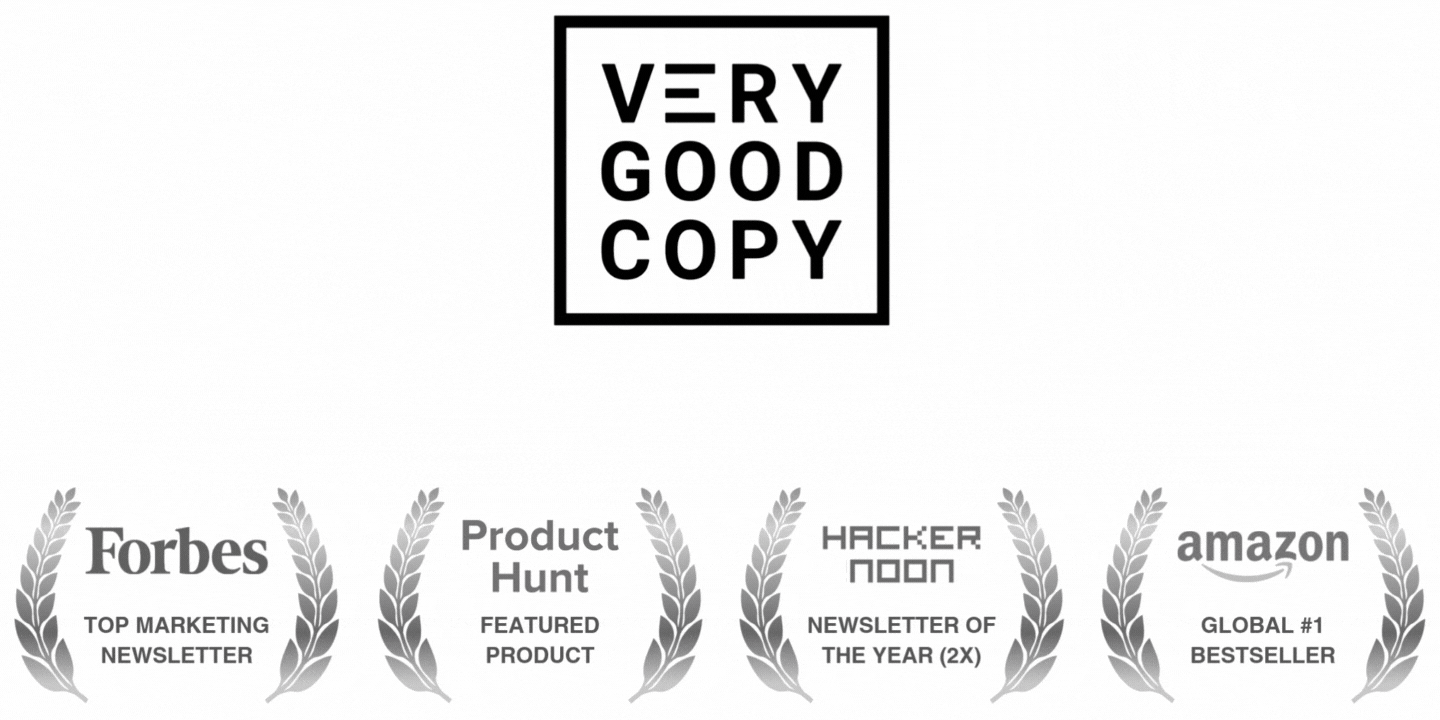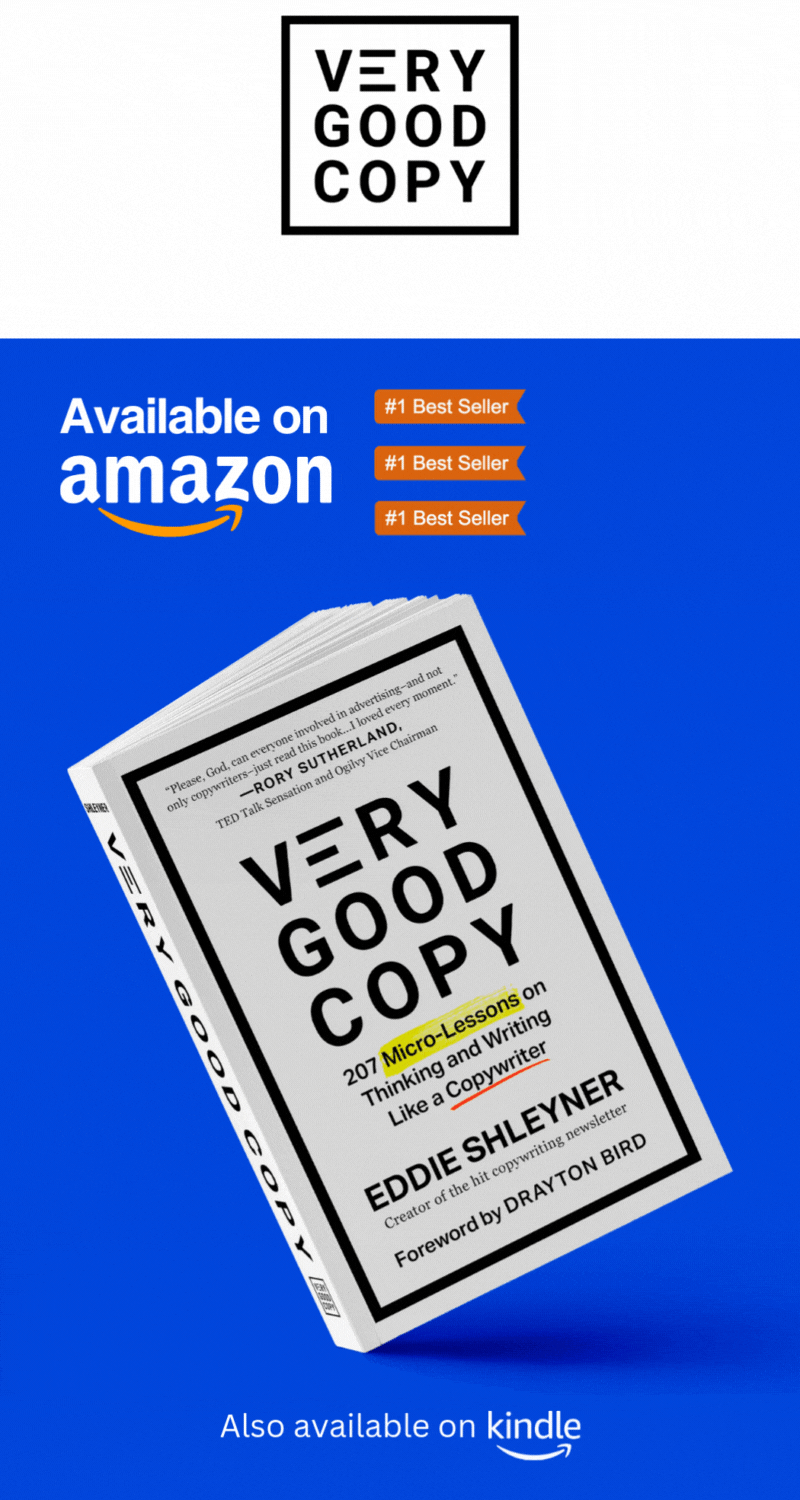EDITOR’S NOTE:
Dave Harland is a fantastic copywriter. He writes everything from slogans to entire websites — not to mention brilliant LinkedIn posts — and he doesn’t stick to any single industry or discipline. He’s written for Emirates, Nespresso, eBay, Jaguar, and Red Bull.
And now he’s with us doing a (stellar) Micro-Interview. In 498 words, Dave shares:
The best copywriting community on the internet...
How he works under both tight and loose deadlines…
How to make copy clients come to you — and not the other way around…
And more...
Instantly get 6 “micro” courses and series about copywriting when you subscribe to the VeryGoodCopy newsletter for free. Plus...enjoy new content every week. Learn more →
Thank you, Dave.
Let’s get started:
1) “What’s your work routine?”
I’m a morning person. Usually at my desk between 7 - 8 am. I work from a shared studio in Liverpool and when the other freelancers arrive between 9 - 10 am, one will usually ask if I’ve been to bed yet.
When writing, I get as much as I know about my subject onto a Word doc, drag all the best bits to page one, and then use them as my main-source info to write the messaging.
If there’s a tight deadline, I’ll just write down whatever’s in my head, in the order I think it. No filter.
If there’s more time, I’ll let it stew for a while and think about different angles I could take.
2) “What do you know about your work now that you wish you’d known when you first started?”
The funnier and the weirder the better.
People read the same old repetitive marketing shite day-in-day out, so if you can write something that really stops them in their tracks and stirs an emotion, makes them laugh, or think “whoa, what the fuck’s this?” then that’s the hard part done.
I mean, if you see a post with the opening line “David, your face is going to explode”, you’re gonna read on, aren’t you?
3) “What did your biggest professional failure teach you?”
To be myself and be honest.
One of my first ever clients was a VoIP phone provider. I somehow blagged it through a meeting, pretending I knew what VoIP meant (I still don't), then struggled through the web pages they wanted me to write. The end result was an absolute dog’s dinner.
So now, I’m straight with clients. I’ll tell them I haven’t got a clue about the technical stuff they need me to add sense and clarity to. And I’ll only begin work once I understand everything. Because if I don’t get it, I’ve got no chance of explaining it to readers.
4) “What’s the #1 thing that has helped you shorten your craft’s learning curve?”
Twitter.
I couldn’t have gone freelance without it. I’ve learnt more from chatting to people on there than in any book. And I’m lucky that the copywriting community on there is just the best. Genuinely nice, supportive, helpful people.
We’re not competitors. We’ve all got each other’s back.
5) “What book has helped you the most over your career?”
Richard Shotton’s The Choice Factory was the absolute eye-opener on human psychology and the decisions we make without even realising.
And there are loads of examples that you can follow in your own marketing – most of it’s real common sense but proven to work.
6) “And your parting piece of advice?”
Never try to sell to people.
For the copywriters out there, it’s far better to showcase your skills by capturing a potential client’s attention with a compelling story on Linkedin, or by telling the CEO of a startup how to make their website more impactful.
Show them you know your stuff, then let them come to you.





